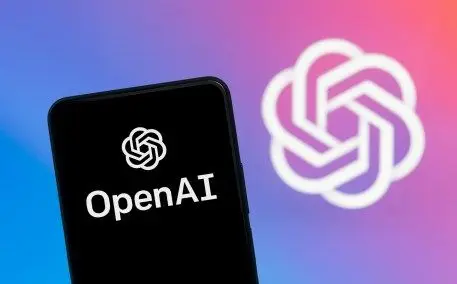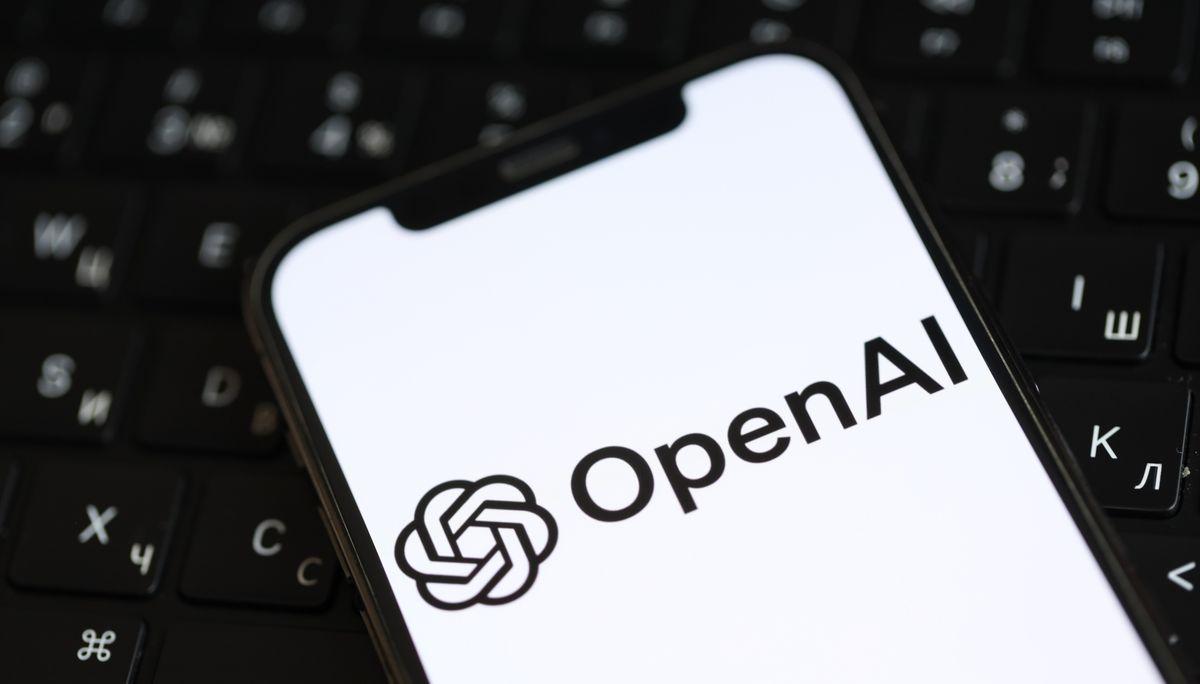OpenAI Reaches 1 Million Business Customers, Claims Fastest-Growing Platform Status
4 Sources
4 Sources
[1]
As OpenAI hits 1 million business customers, could the AI ROI tide finally be turning?
Customers report positive ROI, contrasting industry findings. The promise of what generative AI can do for productivity has led businesses to invest substantial capital in AI products and services, creating a new, lucrative market for AI companies to tap into. OpenAI has launched new features and offerings to meet this demand -- and it appears to be working. Also: How Anthropic's enterprise dominance fueled its monster $183B valuation On Wednesday, OpenAI announced that it has more than one million business customers worldwide, which the company claimed makes it the fastest-growing business platform in history. That brings the company to seven million total ChatGPT for Work seats -- a 40% increase in two months, and nine times the year-over-year growth of ChatGPT Enterprise seats. The company credits this demand to some of its latest features, including company knowledge, which enables ChatGPT to reason across different company databases like Slack, SharePoint, Google Drive, and Codex -- the company's coding agent -- which has seen a 10-fold increase in usage since August. However, OpenAI also noted its ability to convert everyday users -- over 800 million per week, the company reports -- into committed business customers. Also: Want better ChatGPT responses? Try this surprising trick, researchers say "OpenAI acquired its customer base by converting massive consumer usage into an enterprise sales funnel," Gartner analyst Chirag Dekate told ZDNET. "This consumer-to-enterprise flywheel is supported by simple product offerings, like ChatGPT for Work and direct API access." This year was also big for the company on the multimodal front. OpenAI launched its most advanced and realistic video model, Sora 2, just last month. This model has surpassed OpenAI's own DALL-E 3, even producing accurate text. The company also recently released the Realtime API and gpt-realtime to help customers produce realistic voice agents. These releases have helped OpenAI compete with Anthropic, Google, and Microsoft, which have also been trying to capture the enterprise audience. Also: The best free AI for coding in 2025 now - only 3 make the cut (and 5 fall flat) Some, like Microsoft, possess a unique advantage, as many businesses prefer to go to their cloud provider for AI solutions. For example, a Wharton study found that all of the top employer-paid subscriptions aligned with the top primary cloud providers, except for ChatGPT. While it may be true that offering customers a solution already included in their projects may be convenient, it could also make it more difficult for non-Microsoft users to adopt its tools. "Microsoft continues to maintain a strategic moat of its deep incumbency in enterprise accounts and a strong bundling strategy," said Dekate. "Microsoft leverages its M365, Security, and Azure data services as a massive distribution channel for Copilot." Also: Microsoft researchers tried to manipulate AI agents - and only one resisted all attempts Google's advantage lies more heavily on DeepMind's ability to create cutting-edge AI innovations such as Veo 3, Nano banana, and Gemini models, as well "as the breadth of its Vertex AI toolchain and integration with Workspace," added Dekarte. Until now, OpenAI's biggest competitor in the enterprise space has been Anthropic, which currently serves up to 300,000 enterprise customers. According to Anthropic, that totals over $100,000 in run-rate revenue, and has grown nearly seven times in the past year. To capture this audience, the company has largely relied on its reputation as a safe and reliable AI tool, taking a careful approach to training on user data from the beginning and avoiding major scandals. One of the biggest topics of discussion in AI right now is a growing body of evidence failing to show its ROI for businesses that implement it. However, OpenAI included in the blog post examples of how many of its enterprise customers are already seeing some payoff. Also: Everyone thinks AI will transform their business - but only 13% are making it happen For example, the company wrote that Cisco reduced code review times by 50% by shrinking project timelines from weeks to days using Codex. Meanwhile, Carlyle utilized OpenAI's AgentKit evaluation platform to reduce the development time for Carlyle's multi-agent due diligence framework by over 50%. "New products like company knowledge and AgentKit are designed to reduce integration time and shorten deployment cycles. This dual approach of expanding access and simplifying deployment has accelerated adoption. There is verified evidence that companies are seeing ROI in specific, high-value workflows," said Dekarte. Want more stories about AI? Sign up for our AI Leaderboard newsletter. Furthermore, the same Wharton study found that most enterprises achieve a positive ROI, with Tech and Telecom reporting as high as an 88% positive ROI, and Banking/Finance and Professional Services reporting 83% positive ROI. Other sectors see slightly smaller returns, with retail, for example, showing 54% positive ROI.
[2]
OpenAI says it has over a million business customers using ChatGPT - and it isn't stopping there
Claims this makes it the "fastest-growing business platform in history" OpenAI has revealed it has passed an important milestone, with the ChatGPT maker now surpassing one million business customers across the world. The company revealed the landmark, which it says makes it the "fastest-growing business platform in history", working across industries such as financial services, healthcare, retail and many more. This goes along its 800 million weekly users using ChatGPT in some form, which has help make the platform synonymous with the constantly-growing appetite for AI in our daily lives. In a blog post announcing the landmark, the company noted its one million figure covers all organizations which pay OpenAI for business use of its tools, whether that be through ChatGPT for Work, or through direct consumption of the company's AI tools or models through its developer platform. It highlighted a host of customer success stories using OpenAI services, from job site Indeed, which is using OpenAI APIs in its Invite to Apply feature to drive a 20% increase in applications and a 13% lift in hires, to home improvement store Lowe's, which has given its employees in all its 1,700+ stores with expert project guidance through Mylow Companion, an in-store app built with OpenAI models. Looking forward, OpenAI says it now wants to help business customers build with its systems, expanding its reach into businesses even further. This could be through companies plugging their apps directly into ChatGPT, or via building new shopping experiences through the Agentic Commerce Protocol (ACP) in ChatGPT. The company has revealed a host of new tools in recent months to help boost adoption, including "company knowledge", where ChatGPT can reason across tools like Slack, SharePoint, Google Drive, GitHub, and more to get answers, do analysis, and take actions, and AgentKit, allowing customers to build and deploy enterprise agents quicker than ever before. "We're deeply grateful to the customers building with us today," the company noted, "and we're looking forward to what's next in 2026 and beyond. There's a big opportunity to rethink the operating system for work, and we're excited to build the platform to power it."
[3]
OpenAI Crosses 1 Mn Business Customers, Becomes 'The Fastest-Growing Business Platform in History' | AIM
According to the company, businesses such as Amgen, Commonwealth Bank, Booking.com, Cisco, Lowe's, Morgan Stanley, T-Mobile, Target, and Thermo Fisher Scientific are among its active enterprise customers. OpenAI announced that it has surpassed 1 million business customers globally, calling it "the fastest-growing business platform in history." The milestone includes organisations that pay for ChatGPT for Work and those that use OpenAI's developer platform for direct access to its models. According to the company, businesses such as Amgen, Commonwealth Bank, Booking.com, Cisco, Lowe's, Morgan Stanley, T-Mobile, Target, and Thermo Fisher Scientific are among its active enterprise customers. "Our enterprise momentum is fueled in part by consumer adoption," OpenAI said in a statement. The company noted that ChatGPT now has over 800 million weekly users, which it said helps businesses realise return on investment faster. ChatGPT for Work has crossed 7 million seats, marking a 40% increase in two months, while ChatGPT Enterprise seats have grown ninefold year-over-year. To support this growth, OpenAI introduced several new tools and integrations aimed at enterprise deployment. These include Company Knowledge, which allows ChatGPT to access and analyse data across platforms like Slack, SharePoint, Google Drive, and GitHub using GPT-5. The company said its Codex model for code generation and workflow automation has seen a tenfold increase in use since August, with Cisco reporting 50% faster code reviews. OpenAI also launched AgentKit, a framework for teams to develop and deploy AI agents. Carlyle, a global investment firm, used the tool to cut development time on its due diligence framework by over 50%, the company said. OpenAI's recent updates also include advancements in multimodal capabilities, such as image, video, and voice support through the Image Generation API, Sora 2, and Realtime API. The company cited research from Wharton showing that 75% of enterprises report a positive ROI from AI adoption, while fewer than 5% report negative returns. "When AI is deployed with the right use case and infrastructure, teams see real results," OpenAI stated. Looking ahead, OpenAI said more companies are building directly on its platform. Canva, Figma, Zillow, Spotify, Shopify, and others are integrating their applications into ChatGPT. Retailers like Walmart, PayPal, and Etsy are using the new Agentic Commerce Protocol to create conversational shopping experiences within ChatGPT. "We're deeply grateful to the customers building with us today -- and we're looking forward to what's next in 2026 and beyond," OpenAI said. "There's a big opportunity to rethink the operating system for work, and we're excited to build the platform to power it."
[4]
OpenAI Marks 1 Million Business Customer Milestone | PYMNTS.com
By completing this form, you agree to receive marketing communications from PYMNTS and to the sharing of your information with our sponsor, if applicable, in accordance with our Privacy Policy and Terms and Conditions. The artificial intelligence (AI) startup announced this milestone Wednesday (Nov. 5), saying it makes OpenAI "the fastest-growing business platform in history." The figure, the company said on its blog, "includes all organizations that actively pay OpenAI for business use -- either through ChatGPT for Work, or through direct consumption of our models through our developer platform." "Our enterprise momentum is fueled in part by consumer adoption," the post added."With more than 800 million weekly users already familiar with ChatGPT, adoption and ROI within businesses is realized more rapidly -- pilots are shorter and rollouts face less friction." The blog post also cited a recent Wharton study which found that 75% of enterprises saw a positive ROI, and under 5% report a negative return. "While there are many studies on this topic, this one reflects what we see on the ground today with our customers: when AI is deployed with the right use case and infrastructure, teams see real results," the company said. Writing about AI use in business in September, PYMNTS CEO Karen Webster referred to PYMNTS Intelligence research showing "a strong, or what I might even call compelling," positive impact from generative AI in the corporate world. According to those findings, 90% of enterprise chiefs cited a positive effect on their customer experience, and more than three quarters saw a positive impact on their competitive position. Meanwhile, OpenAI CEO Sam Altman said on a recent episode of the BG2Pod podcast that the company was doing "well more" than $13 billion in revenue. That figure has been widely shared, leading some observers to wonder how the company could pay for its recent compute deals with $13 billion in revenue. "First of all, we're doing well more revenue than that," Altman said on the podcast, adding that the company's revenue is growing steeply, per a report on the broadcast by Seeking Alpha. When one of the podcast's hosts asked if OpenAI could hit $100 billion in revenue in 2028 or 2029, Altman replied: "How about '27?" Also this week, OpenAI and Amazon Web Services (AWS) announced a $38 billion agreement that lets OpenAI run its AI workloads on AWS infrastructure, beginning immediately. Under the agreement, OpenAI will access AWS compute comprising hundreds of thousands of Nvidia GPUs and can expand to tens of millions of CPUs to scale agentic workloads.
Share
Share
Copy Link
OpenAI announces it has surpassed 1 million business customers worldwide, marking what the company calls the fastest-growing business platform in history. The milestone comes as enterprises report positive ROI from AI adoption, with ChatGPT for Work seats growing 40% in just two months.
OpenAI Achieves Historic Business Milestone
OpenAI announced Wednesday that it has surpassed one million business customers worldwide, a milestone the company claims makes it "the fastest-growing business platform in history."
1
This figure encompasses all organizations that actively pay OpenAI for business use, whether through ChatGPT for Work or direct consumption of models through the developer platform.4

Source: PYMNTS
The achievement represents significant growth momentum, with ChatGPT for Work reaching seven million total seats—a 40% increase in just two months.
1
ChatGPT Enterprise seats have experienced even more dramatic growth, expanding ninefold year-over-year.3

Source: ZDNet
Enterprise Customer Portfolio Spans Major Industries
OpenAI's business customer base includes prominent organizations across various sectors, including Amgen, Commonwealth Bank, Booking.com, Cisco, Lowe's, Morgan Stanley, T-Mobile, Target, and Thermo Fisher Scientific.
3
The company attributes this enterprise momentum partly to its massive consumer adoption, with over 800 million weekly users already familiar with ChatGPT, which accelerates business adoption and reduces deployment friction.4

Source: TechRadar
New Enterprise Tools Drive Adoption
OpenAI credits much of its business growth to recent feature launches designed specifically for enterprise customers. Company Knowledge enables ChatGPT to reason across different company databases including Slack, SharePoint, Google Drive, and GitHub.
1
The company's Codex coding agent has seen a tenfold increase in usage since August, with Cisco reporting 50% reductions in code review times.3
Additionally, OpenAI launched AgentKit, a framework allowing customers to build and deploy enterprise agents more rapidly. Investment firm Carlyle utilized this platform to reduce development time for its multi-agent due diligence framework by over 50%.
1
Related Stories
Positive ROI Evidence Emerges
Contrary to growing skepticism about AI's return on investment, OpenAI highlighted customer success stories demonstrating tangible business value. Job site Indeed reported a 20% increase in applications and 13% lift in hires using OpenAI APIs in its Invite to Apply feature.
2
Home improvement retailer Lowe's deployed AI-powered expert guidance across all 1,700+ stores through its Mylow Companion app.2
A recent Wharton study cited by OpenAI found that 75% of enterprises report positive ROI from AI adoption, while fewer than 5% report negative returns.
4
According to Gartner analyst Chirag Dekate, there is "verified evidence that companies are seeing ROI in specific, high-value workflows."1
References
Summarized by
Navi
[2]
Related Stories
Recent Highlights
1
Samsung unveils Galaxy S26 lineup with Privacy Display tech and expanded AI capabilities
Technology

2
Anthropic refuses Pentagon's ultimatum over AI use in mass surveillance and autonomous weapons
Policy and Regulation

3
AI models deploy nuclear weapons in 95% of war games, raising alarm over military use
Science and Research








